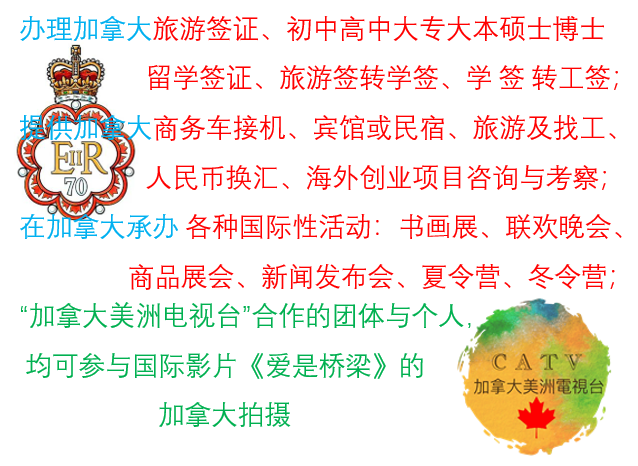卫生医疗官 (局长) Eileen de Villa医生的讲话 Remarks for Dr. Eileen de Villa, Medical Officer of Health
大家晚上好,欢迎大家。我是多伦多卫生医疗官(局长)Eileen de Villa医生。我很高兴,今天与市议员Jim Karygiannis和封赖桂霞(待确认)能与大家共聚一堂。
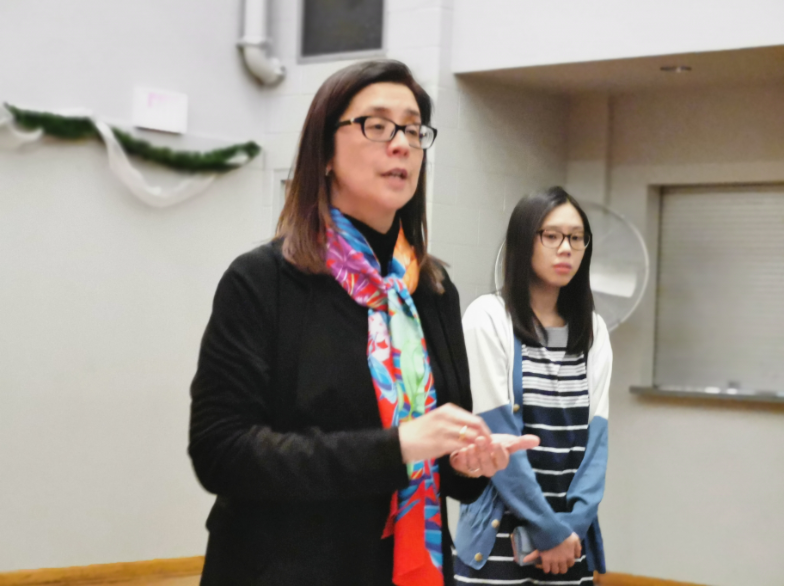
衷心感谢你们今天抽出宝贵时间来出席这次座谈会,从而能让我们能够:
1/ 为你们提供有关新型冠状病毒的最新进展和当前实际情况;
2/ 为你们提供向我们提问的机会
3/ 为你们提供基于证据的事实和依据,以解决你们的疑虑。
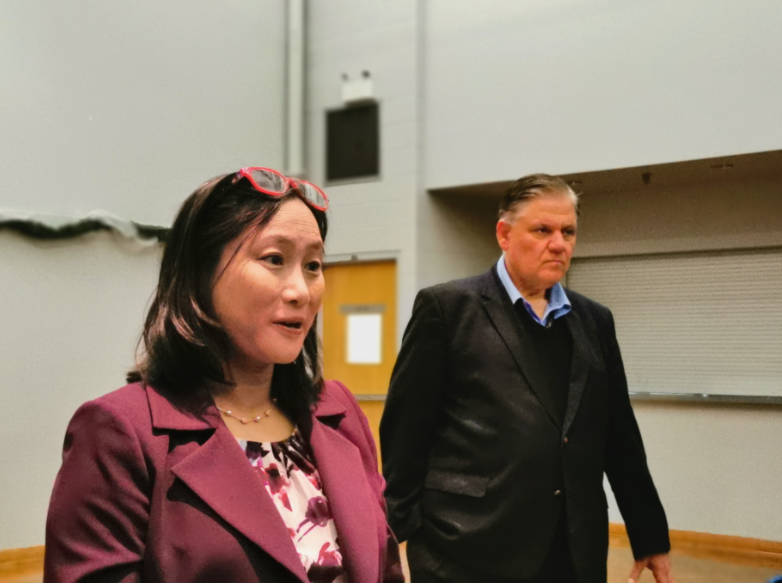
就在昨天,我们命名了新型的冠状病毒-19:COVID-19
首先,让我先说明,目前我们社区面临影响健康的风险仍然很低。到目前为止,多伦多仅有两例新型冠状病毒确诊病例。这两个人正在家里进行自我隔离,正在康复中,我的工作人员正在直接跟进他们,每天都给他们打电话。
我们正在监视他们的症状。如果对他们进行间隔24小时的两次化验,显示他们体内不再有这种病毒后,他们将结束隔离,可以恢复正常活动。
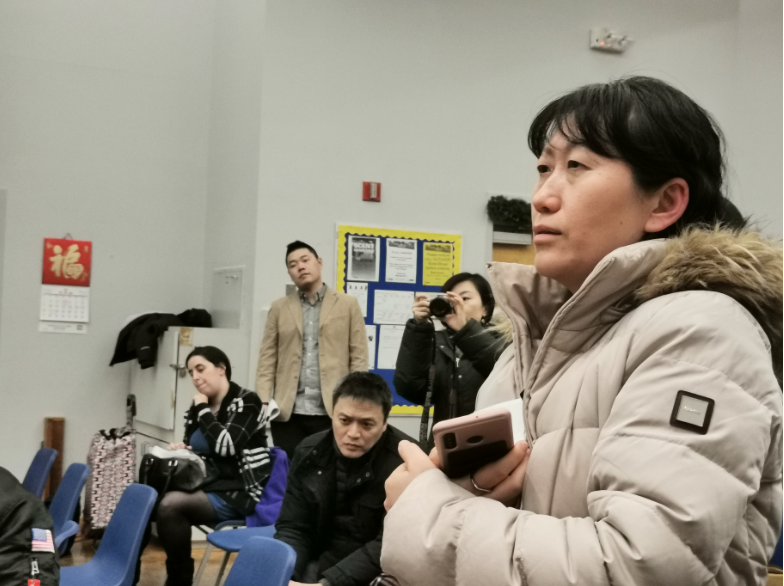
我想借此机会提醒大家,我们经常使用公共卫生中的“病例”和“接触”之类的术语,但我一再强调的是,最重要的是要记住这些患者是我们社区的成员。我们需要尊重他们的隐私,让他们安心地休息和康复。
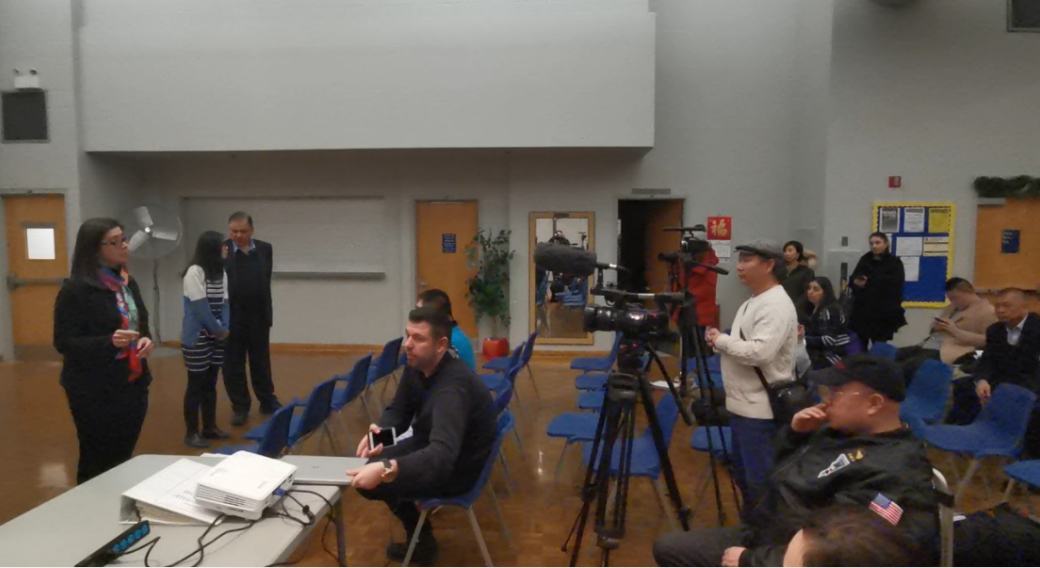
新型冠状病毒是种新病毒,才被发现约一个月。全球卫生界仍在继续收集有关该病毒致病的证据。随着新的、经过验证的科学数据的出现,我的工作人员以及我们的地方、省和联邦合作伙伴,会按照最佳的现有证据,调整我们的应对方法。我们预计,随着我们获得更多信息以及科学基于证据的事实不断得到确认,情况也会不断发生变化。
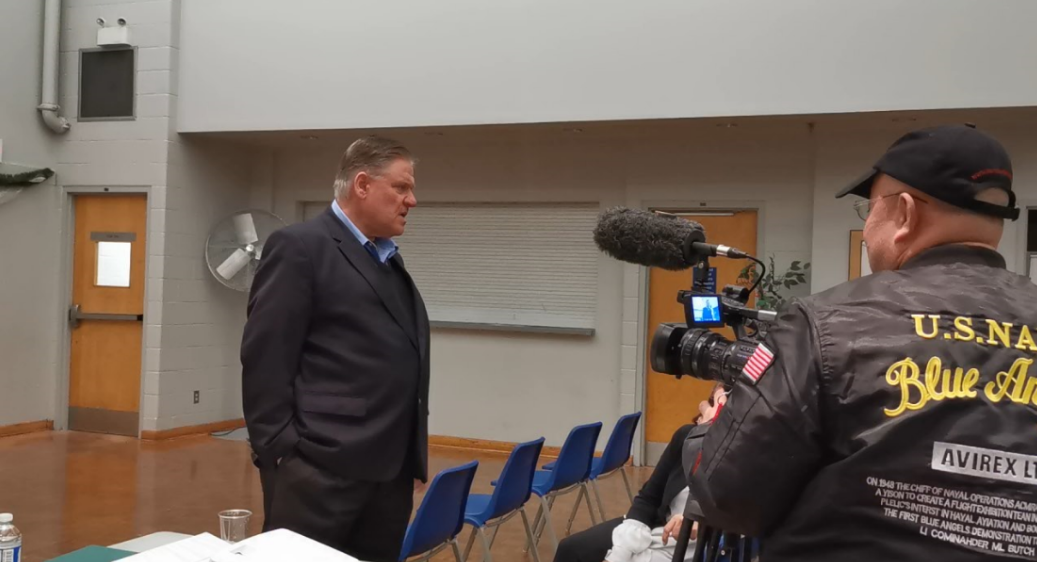
此外,我认为分享什么是冠状病毒也很重要。冠状病毒是引起呼吸系统疾病的一大类病毒,所造成的疾病从普通感冒到严重疾病都有,后者的例子有严重急性呼吸系统综合症冠状病毒(也称为非典或SARS)和中东呼吸系统综合症冠状病毒(也称为MERS CoV)。
上周晚些时候,加拿大卫生官员提供了2019年新型冠状病毒的最新信息。他们指出,为了支持全球遏制这种病毒并限制其传播的工作,加拿大公共卫生局现建议:
如果您过去14天曾去过湖北省:
· 从您离开湖北之日算起,在总共14天内,限制您与他人的接触。这意味着要待在家里进行自我隔离。
· 在您抵达加拿大后24小时内,请与当地公共卫生部门联系。
· 对多伦多居民,就是联系多伦多公共卫生局(Toronto Public Health),其电话为416-338-7600。
如果您过去14天曾去过中国大陆:
· 监视自己的呼吸道症状,包括发烧、咳嗽和呼吸困难。
· 如果这些呼吸道症状在返回加拿大后的14天内出现,请立即就医。
· 在就医之前,请告知您的医护人员或当地公共卫生部门您的症状和旅行史。
我想重申,目前我们社区面临的风险仍然很低。因此,我们给公众的建议保持不变,那就是在流感季节(通常从11月至3月)期间,采用我们始终向人们推荐的良好感染预防和控制做法。这些措施看似简单,但实际上是保护自己和他人免受疾病侵害的非常有效的方法。它们包括:
· 经常用肥皂和水彻底清洗双手,或使用含酒精的手用消毒液。
· 咳嗽和打喷嚏时遮住口鼻
· 如果没有纸巾,可以咳嗽或打喷嚏到袖子或手臂上
· 从诊所和药房接种当年流感疫苗
· 生病时请待在家中
这些是你们可以帮助防止病毒在我们社区中传播的最佳方法。我认为,让公众知道我们公共卫生部门是怎样工作的也很重要。
作为公共卫生专业人士,一旦传染性疾病由医疗机构确定并由实验室化验确认,我们就会例行接到通知。
当我们被告知发生传染性疾病时,在幕后工作的、由熟练的公共卫生专业人员组成的系统将会启动工作。我们从跟进患者开始,了解他们生病的周围环境情况,确定他们与哪些人密切接触过,并确定在可能将疾病传染给他人的期间他们去过哪些地方。这就是我们公共卫生工作的一部分,我们每天都这样做。
当出现以下情况时,我们就会按上述流程开展工作,以确保人们得到通告:
1/ 他们可能已经面临潜在的影响健康的风险
2/ 他们应注意哪些症状
3/ 他们应在何时寻求哪种医疗方法
我们这样做,也是为了通过帮助患者及时获得治疗来保护他们的健康,并帮助防止传染病在我们社区中传播。
对于这种特殊的新型冠状病毒,我认为重要的是要记住,它被发现的时间只有大约一个月。随着我们对这种病毒及其传播方式的更多了解,全球公共卫生官员正在更新应对这种新病毒的方法。
我还要提醒大家,病毒与地理位置、收入、种族、宗教或政治观点如何是没有界线的。
不过,当存在不确定性时,人们可能会担心,这是可以理解的。由于这是一个不断变化的局面,因此我们继续提醒民众,使用可靠的信息来源是非常重要的,这样才能获得最新的正确信息。随着新信息的确认,我们将继续不断更新我们的网站。如果您有任何疑问,建议您联系我们的热线。我们的电话是416-338-7600,工作时间为周一至周五上午8:30至晚上8点,周末上午10点至下午6点。我们提供多种语言的翻译。
最后,我要再次感谢你们抽出宝贵时间来了解当前状况。我很高兴回答你们提出的各种问题。谢谢。[结束]
L'Amoreaux社区中心公众大会
2020年2月12日
2000 McNicoll Avenue
下午6点
Remarks for Dr. Eileen de Villa, Medical Officer of Health
Good evening and welcome everyone. I’m Dr. Eileen de Villa, Toronto’s Medical Officer of Health. I'm pleased to join you here today with Councillors Jim Karygiannis and Cynthia Lai (TBC).
I am sincerely grateful that you are taking the time to be here today so that we can:
1/ provide you with an update and the current facts on the novel coronavirus;
2/ provide a forum for you to ask us questions, and
3/ provide you with evidence-based facts and support to address your concerns.
As of yesterday, we now have a new name for this new Coronavirus disease virus: COVID-19.
Firstly, let me start by saying that at this time the health risk to our community remains low. At present, there are only two confirmed cases of the novel coronavirus in Toronto. My staff continue to follow up directly to connect with these two people through daily phone calls while they remain at home in isolation as they recover.
We are monitoring their symptoms and we would end their isolation and allow them to return to their regular activities when we have two tests, taken 24 hours apart, that show that there is no more virus in their body.
I want to take this opportunity to remind everyone that we often use terms in public health like “cases” and “contacts”, but I cannot emphasize enough how important it is to remember that these are people from our community that we are talking about. We need to respect their privacy and allow for their rest and recovery.
The novel coronavirus is a new virus that was identified only about a month ago. The global health community continues to gather health evidence on this virus. As new, verified scientific data emerges, my staff and our local, provincial, and federal partners adapt our approach to follow the best available evidence. We expect that the situation will continue to change as we learn more and scientific evidence-based facts are confirmed.
I think it is also important to share what a coronavirus is. Coronaviruses are a large family of viruses that cause respiratory illness ranging from the common cold to more severe diseases such as Severe Acute Respiratory Syndrome Coronavirus or also referred to as SARS and the Middle East Respiratory Syndrome Coronavirus otherwise known as MERS CoV.
Late last week, Canadian health officials provided an update on the 2019 novel coronavirus. They indicated that to support global containment efforts and limit the spread of this virus, the Public Health Agency of Canada is now recommending:
If you have travelled to Hubei Province in the last 14 days:
· Limit your contact with others for a total of 14 days from the date that you left Hubei. This means self-isolate and stay at home.
· Contact your local public health department within 24 hours of arriving in Canada.
· For Toronto residents, this means contacting Toronto Public Health at 416-338-7600.
If you have travelled from mainland China in the last 14 days:
· Monitor yourself for respiratory symptoms including fever, cough and difficulty breathing.
· Should these respiratory symptoms develop within 14 days after returning to Canada, seek medical care immediately.
· Inform your healthcare provider or your local public health department about symptoms and travel history before seeking medical care.
I want to repeat that at this time, the risk to our community remains low. Therefore, our advice to the general public remains the same, and that is to use good infection prevention and control practices that we always recommend to people during the flu season which typically runs from November until March. These measures may seem simple, but they are actually very powerful ways to protect yourself and others from getting sick. They include:
· wash your hands frequently and thoroughly with soap and water or use an alcohol-hand sanitizer
· cover your mouth and nose when you cough, or sneeze
· if you don’t have a tissue, sneeze or cough in your sleeve, or arm
· get an annual flu vaccine, available from clinics and pharmacies; and
· to stay home if you are sick
These are the best ways that you can help to prevent viruses from spreading in our community. I think it is important to also share what we do in public health.
As public health professionals, we are notified of infectious diseases routinely as they are identified by health care providers and confirmed through lab tests.
When we are notified of instances of infectious disease, it activates the work of a system of skilled public health professionals who work behind the scenes. We begin by following up with the person who is sick to understand the circumstances surrounding their illness, we identify people they have had close contact with and settings where they may have been during the time when the disease might have been transmitted to others. We do this as part of our work in public health, each and every day.
We do this work to make sure that when these situations occur people are notified:
1/ that they may have been exposed to a potential health risk
2/ what signs and symptoms they should look out for; and
3/ when and what medical treatment should be sought out
We also do this to help people protect their health by accessing timely treatment and to help prevent the spread of infectious diseases in our community.
With this particular novel coronavirus, I think it's important to remember that it was only identified about a month ago. As we learn more about this virus and how it is transmitted, global public health officials are updating their approaches in response to this new virus.
It is also to remind people that viruses respect no boundaries: not geography, income, race, religion, or political perspective.
However, it is understandable when there are uncertainties that people get concerned, that people may worry. As this is an evolving situation, we continue to remind people of the importance of using credible sources to stay informed. We continue to update our website frequently as new information is confirmed. I encourage you to contact our hotline for any questions you may have. You can reach us at 416-338-7600, Monday to Friday from 8:30 a.m. to 8 p.m. and on weekends from 10 a.m. to 6 p.m. Translation is available in many languages.
Lastly, I want to thank you once again for taking the time out of your day to get informed about this situation. I am happy to answer any questions you may have. Thank you. [END]
L'Amoreaux Community Centre Town Hall
February 12, 2020
2000 McNicoll Avenue
6 p.m.
本页面二维码, 扫一扫即可分享


